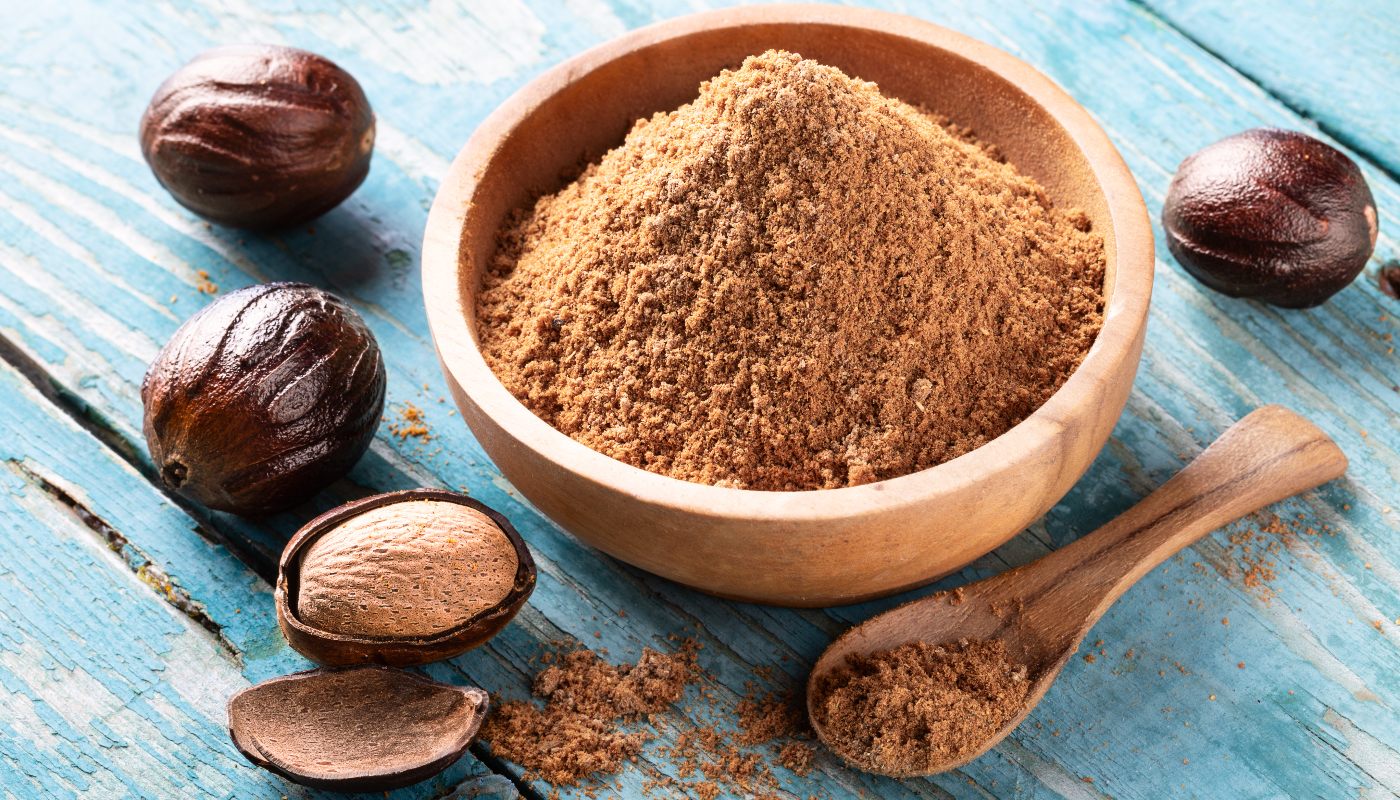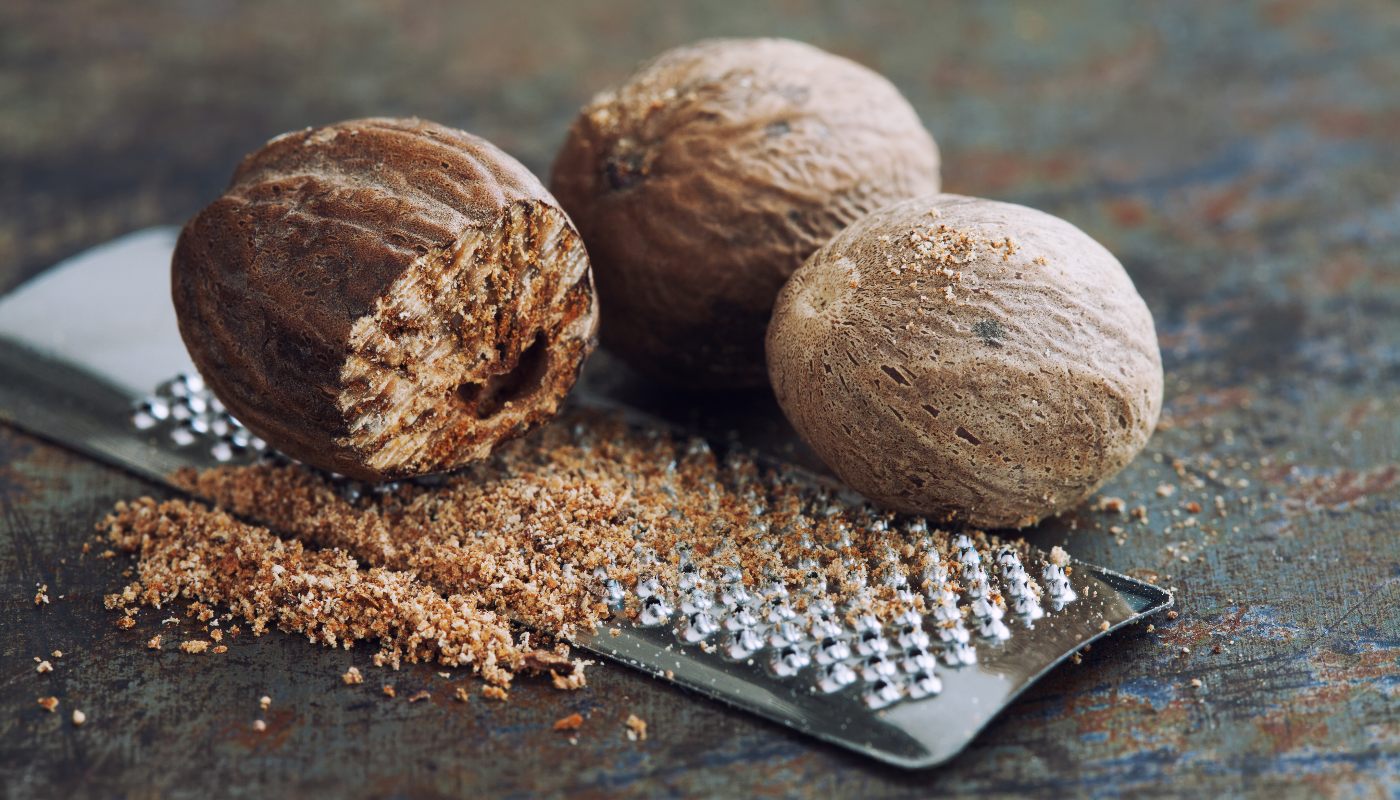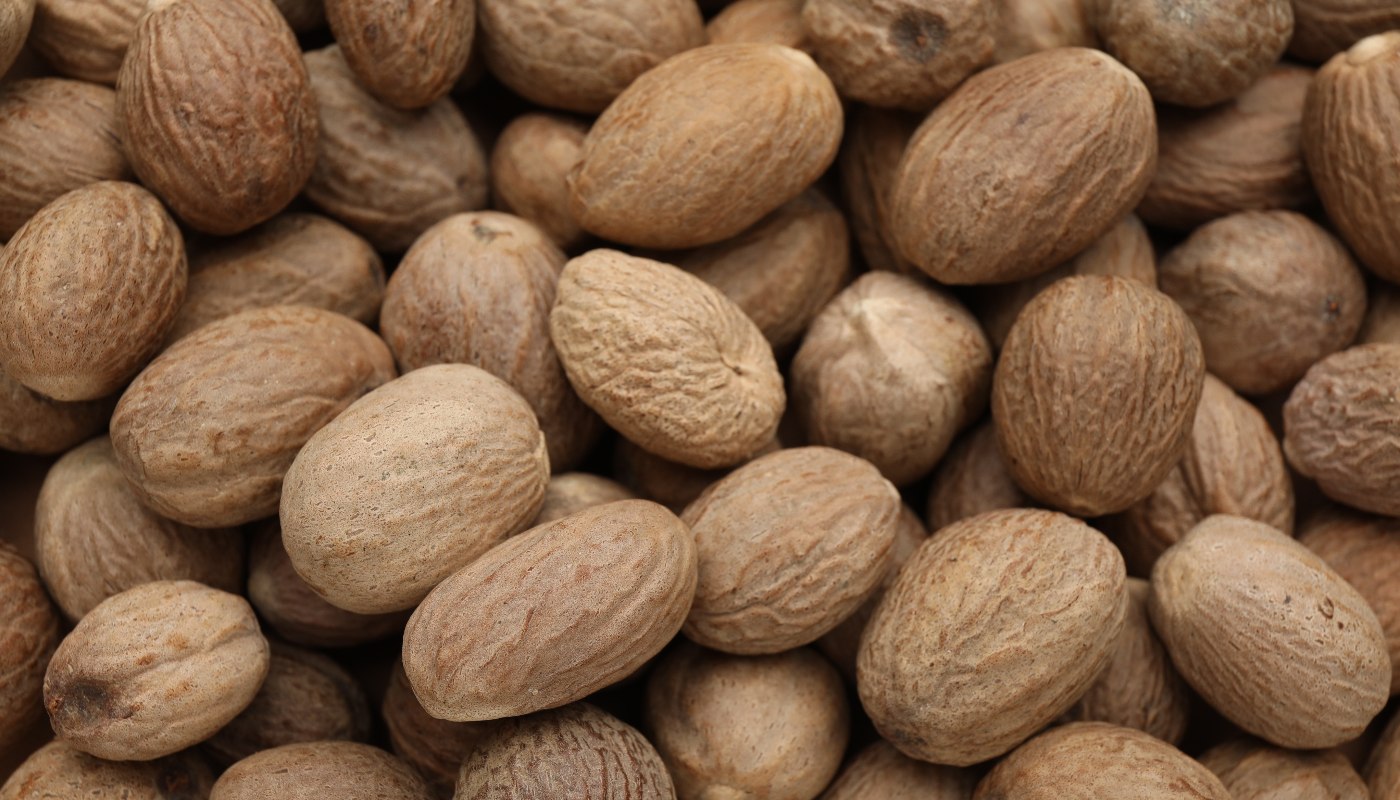Discover the Properties and Benefits of Nutmeg
Learn about nutmeg, its amazing properties and how you can incorporate it into your daily life – learn about this wonderful ingredient!
fresh food
Share

What is nutmeg?
We have heard a lot about this spice, but do we really know what nutmeg is? Contrary to what it may seem, and although it is referred to as such, nutmeg is not a nut but a berry from the fruit of the tropical tree Myristica fragans, native to the Moluccas (also known as the Spice Islands). The tree that bears it typically measures between 5 and 20 meters in height and produces another spice called ‘mace’, which has a more bitter and less intense flavour than nutmeg.
Therefore, when faced with the common doubt as to whether nutmeg is a nut, the answer is no. In fact, it’s mainly used as a spice because of its unique, intense and aromatic flavour, as well as its versatility, offering both sweet and spicy notes at the same time. It also has a very distinctive woody undertone on the palate.
Nutmeg has been used since ancient times and goes well with meat and fish, as well as vegetables, pulses, eggs, sauces and even drinks and desserts. During the Middle Ages, it was one of the most sought-after and valuable spices, and when it spread to central Europe it became common among the wealthier classes. In addition to being a key ingredient in the cuisine of some Eastern European countries, nutmeg was soon valued for its other attributes, as it possesses some very interesting properties.

Benefits and properties of nutmeg
This spice is a source of vitamins A, B and C, such as folates, niacin and riboflavin, and minerals such as potassium, iron, magnesium, phosphorus and calcium. Nutmeg, for all these reasons, has health benefits that are worth knowing about. Thanks to its anti-inflammatory and antibacterial action, it helps to improve oral diseases and digestive disorders. Its relaxing and mildly sedative components are useful in the form of an infusion to calm nerves, relieve gum pain, and even prevent insomnia.
Additionally, it’s believed to help prevent heart disease, promote good blood circulation, and strengthen the cardiovascular system. It’s also used to relieve intestinal inflammation, as it acts as a natural anti-inflammatory. On top of all this, nutmeg is beneficial for the skin and is used, along with ingredients like honey or oats, in the preparation of natural exfoliants.
What foods do you add nutmeg to?
After knowing all its benefits, it’s logical to want to know what foods nutmeg is added to. Whether ground or grated, nutmeg can be found in stews, soups, sauces (like béchamel), purees, pasta dishes and potatoes. This spice is also a classic in hot beverages, such as coffee or hot chocolate, as well as in desserts like cakes, cookies, pancakes, flans and custards. It’s often used as an ingredient in Christmas punches or desserts.

Can nutmeg be eaten during pregnancy?
The consumption of nutmeg during pregnancy is not recommended. It’s also advisable to avoid consuming large doses of this spice, as it contains compounds like myristicin, which can be toxic in excessive amounts and may cause drowsiness, dizziness, confusion, hallucinations, dry mouth, increased temperature, excessive sweating, fatigue, headaches, panic attacks and seizures... Finally, it’s important to know that these symptoms can appear within 30 minutes of consuming nutmeg and may take up to 10 hours to completely subside.






